The Mobile CPU Core-Count Debate: Analyzing The Real World
by Andrei Frumusanu on September 1, 2015 8:00 AM EST- Posted in
- Smartphones
- CPUs
- Mobile
- SoCs
Hangouts Writing A Message
Naturally typing and writing messages is a big part of every-day scenarios for a lot of applications. This time, it's mostly the keyboard application that uses up most of the processing power as it does dictionary lookups for word correction and prediction. In this scenario I used TouchPal's swyping keyboard instead of a usual touch keyboard.
No I don't usually swype this slowly!
On the little cores we see a very variable load. In general, it looks like all 4 little cores are used at medium load. CPU frequency as well doesn't look to reach the higher frequency states and tends to fluctuate on the lower-end of the available range.
The big cores aren't active at all. It's only when sending the message that the cores kick into gear for a very short burst. The rest of the time, they're residing on at minimim frequency in their power-gated states.
As the big cores didn't have much scheduled on them, the total rq-graph for the whole system doesn't look very different from the one on the little cores. Writing messages is definitely a low-end task that doesn't require too much processing power.


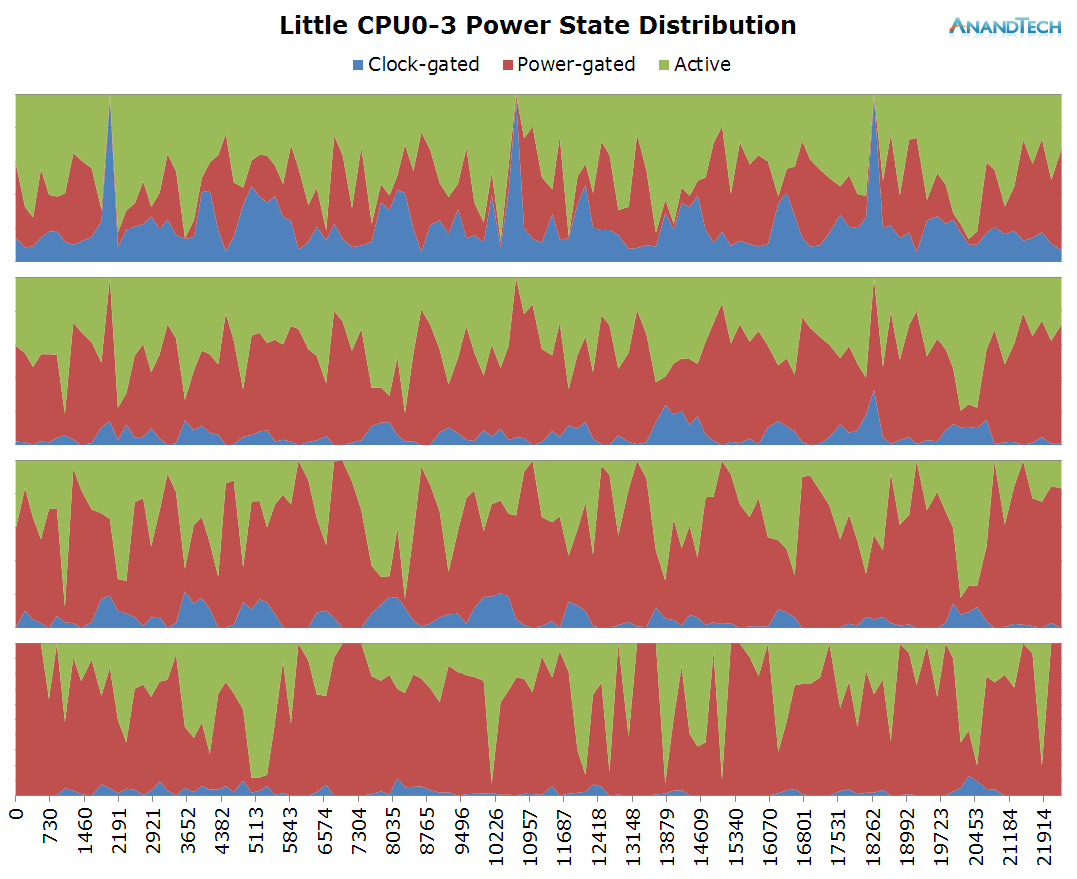
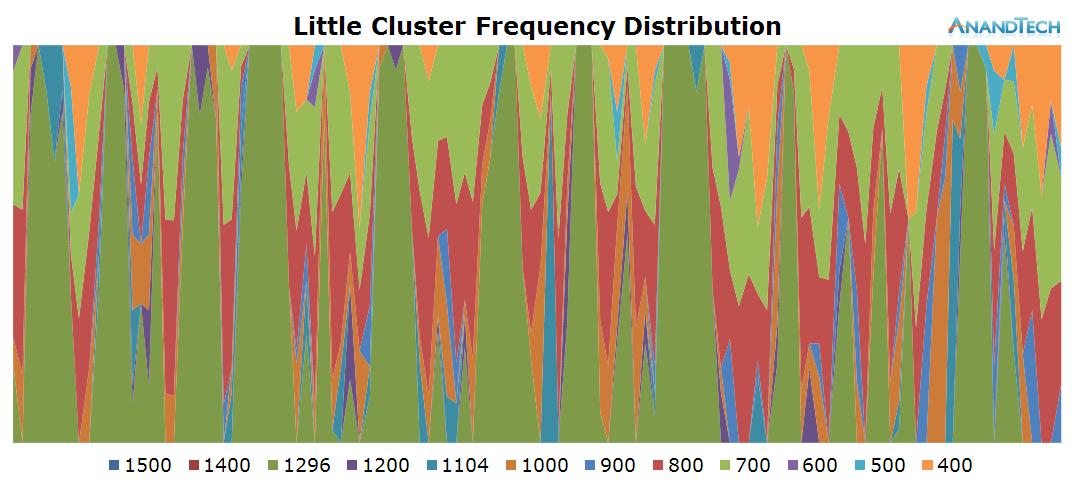
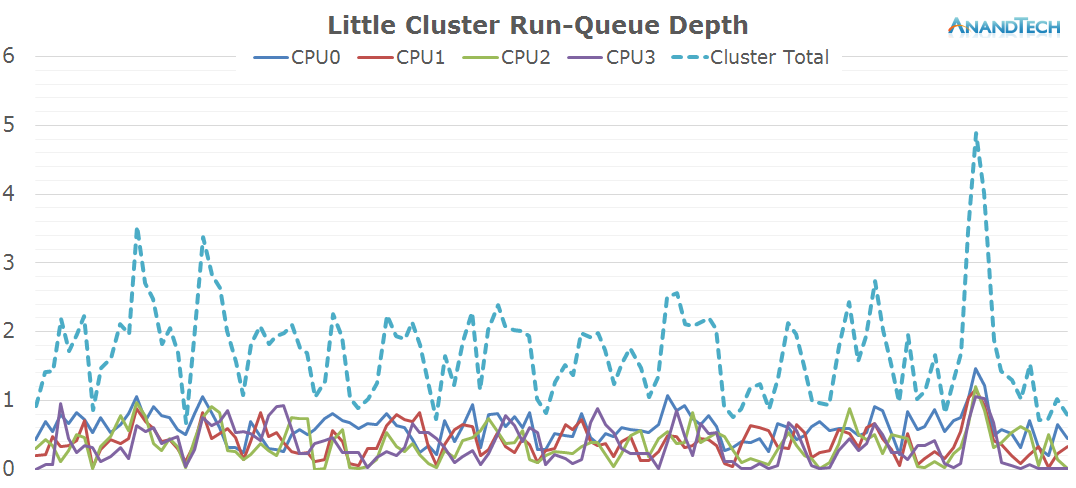
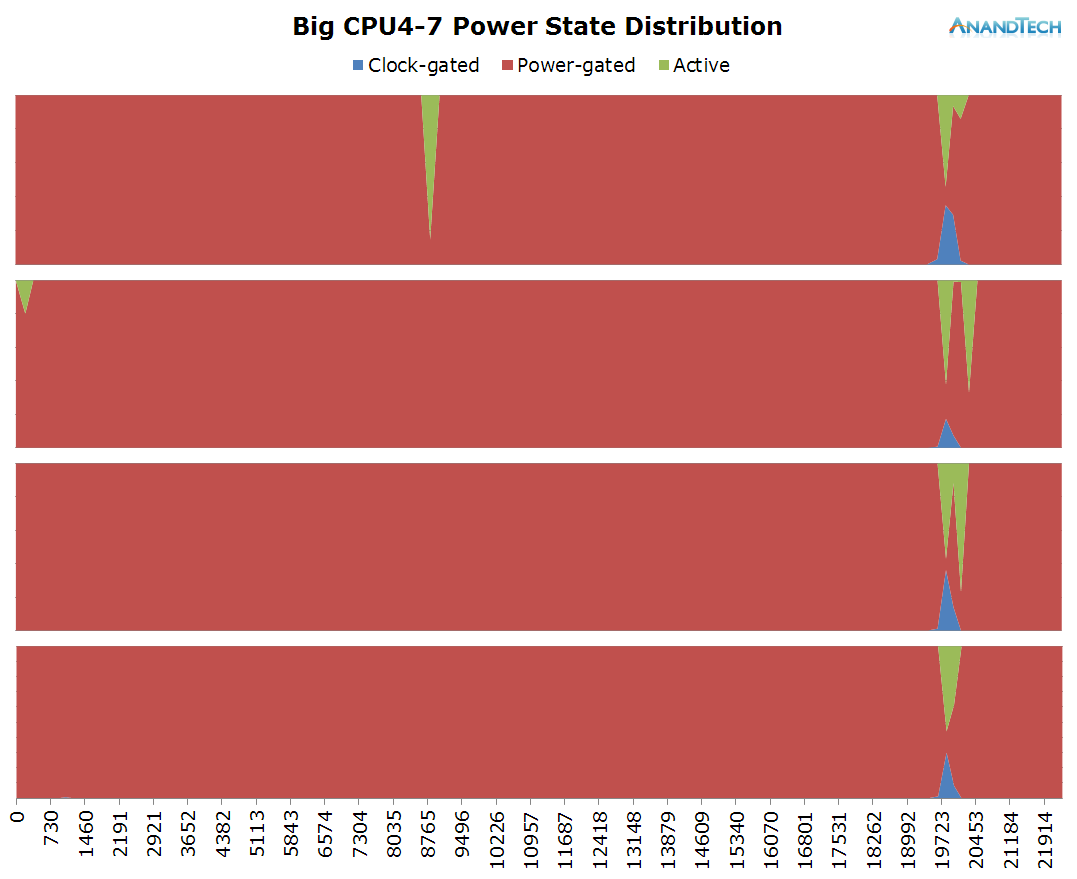
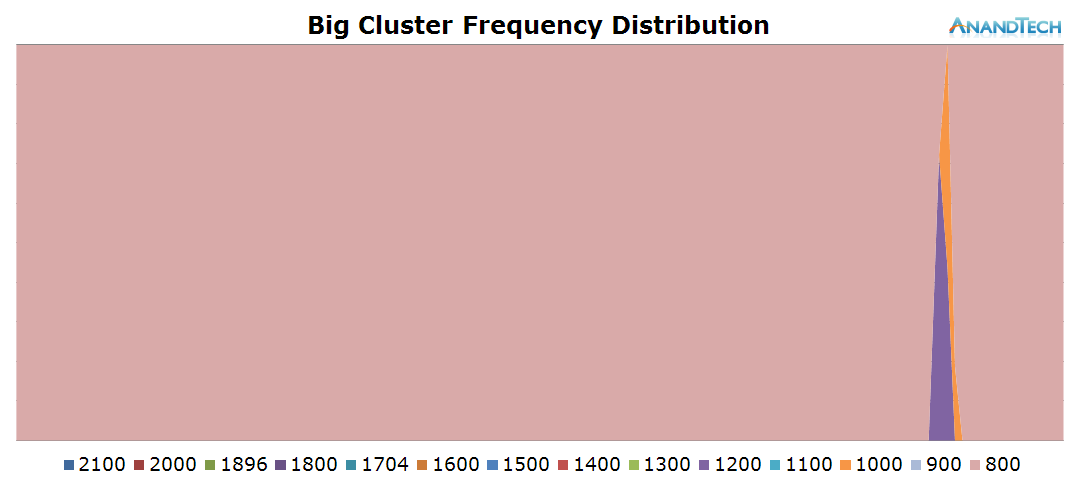
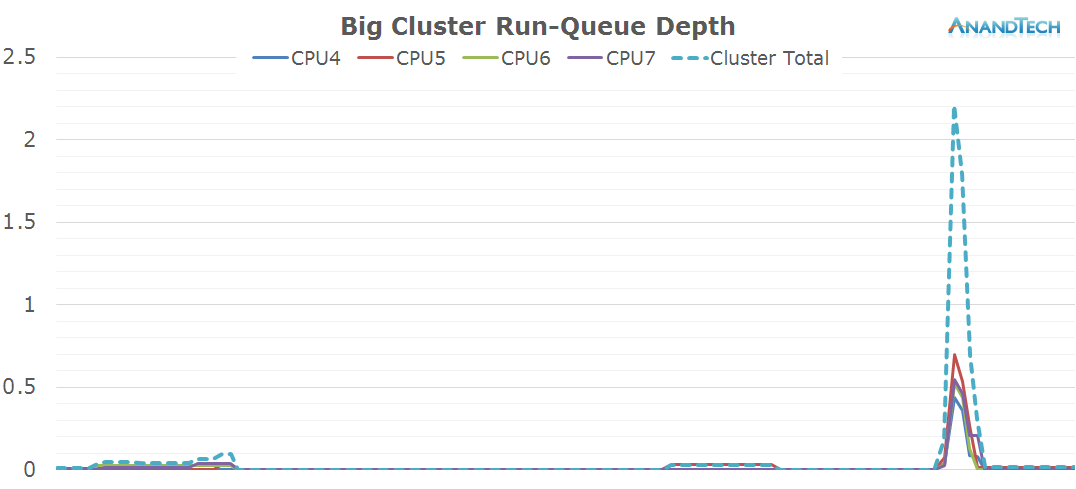
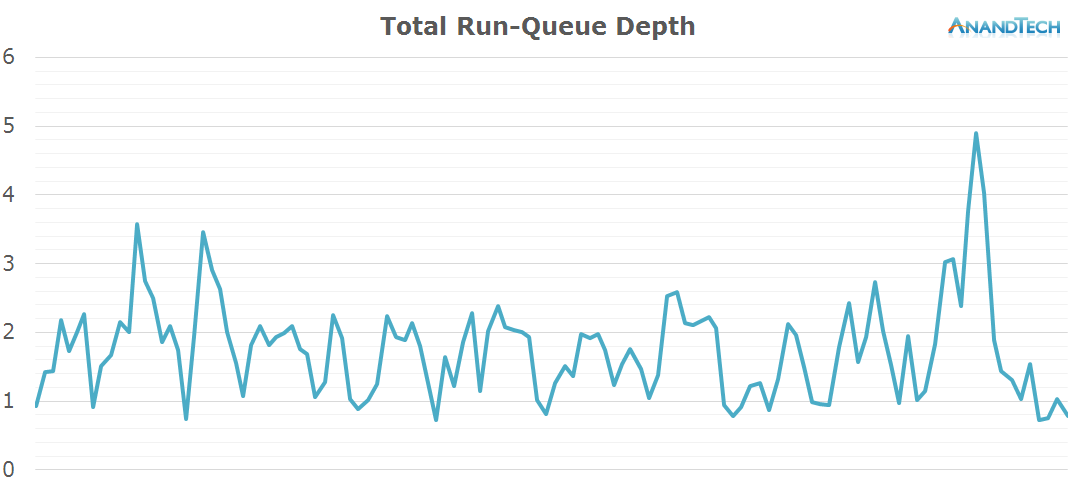








157 Comments
View All Comments
TylerGrunter - Tuesday, September 1, 2015 - link
In fact you are in the right place to ask that question, as one of the profets os the mantra was Anand Lal Shimpi himself:http://www.anandtech.com/show/7335/the-iphone-5s-r...
Quoting from the article:
"two faster cores are still better for most uses than four cores running at lower frequencies"
You can read the rest if you are interested, but that´s how much of the mantra started.
retrospooty - Tuesday, September 1, 2015 - link
I wont hold that against Anand, he was lobbying toward a job at Apple ;)But seriously, it was 2 years ago. At that time ""two faster cores are still better for most uses than four cores running at lower frequencies" may well have been the case. Also, no matter how you slice it, an 8 core big.little is not a true 8 core CPU. It's really still 4 cores.
retrospooty - Tuesday, September 1, 2015 - link
/edit. I do remember alot of people crying "you dont need 8 cores" but again, that was people misunderstanding ARM's big.little architecture made worse by marketing calling it "8" cores" in the first place.TylerGrunter - Tuesday, September 1, 2015 - link
I agree with you, and he may not have been THAT wrong at the time. But with the current implementations of power gating and turbos most of what he said has been rendered false.AFAIK, big.LITTLE can be a true 8 core, it actually depends on the implementation.
lilmoe - Sunday, September 6, 2015 - link
"Also, no matter how you slice it, an 8 core big.little is not a true 8 core CPU. It's really still 4 cores."An 8 core big.LITTLE chip running in HMP mode (like the Exynos 5422 onward) is in fact a "true" 8 core chip in which all 8 cores can be running at the same time. You're thinking core migration and cluster migration setups in which only 4 cores (or a combination of 4) can be running at the simultaneously.
lilmoe - Sunday, September 6, 2015 - link
"can be running at the simultaneously."*corrected: can be running simultaneously.
osxandwindows - Friday, September 25, 2015 - link
If i run all 8 cores at the same time, wood it affect battery life?mkozakewich - Wednesday, September 2, 2015 - link
If the option is really four weak cores or two powerful cores, I think the two powerful ones would make a better system. If we could have two powerful cores AND four weak cores, that would be even better.So I think he was probably justified.
mkozakewich - Wednesday, September 2, 2015 - link
Just everyone who's easily influenced, really. I heard it from pretty much everyone. Someone I was talking to apparently "knew someone who designed a Galaxy phone." He claimed they wanted to design it with two cores, or something, but the marketers wanted eight.StormyParis - Tuesday, September 1, 2015 - link
Very interesting, thank you.